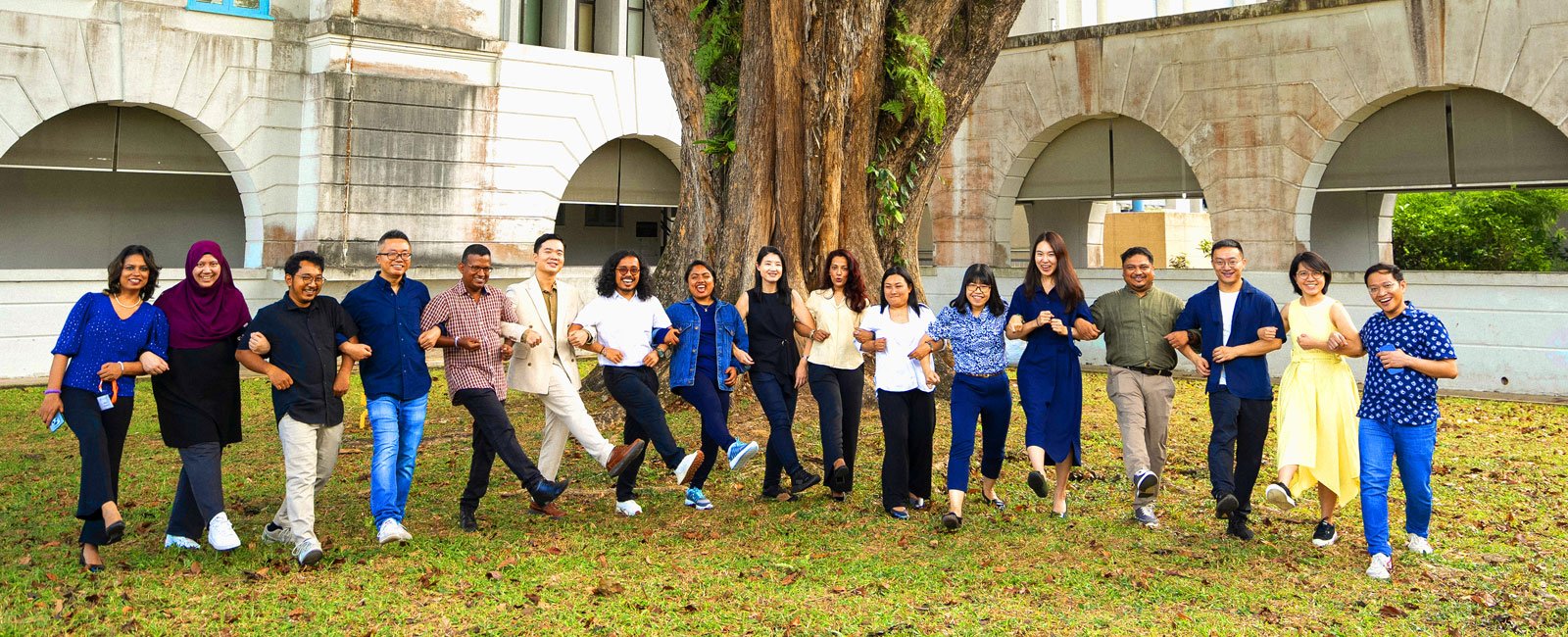Friendships without borders: Pakistan, India, Bangladesh reconnect in Singapore
The three countries may have their distinct names, identities and directions today but we still share one common thing — a strong connection

It wasn't the start I had imagined for my Singapore trip in August. I was excited about exploring a new place, a little sleep-deprived, and mildly anxious about how the next 30 days would go. Then, boom—disaster struck! My only suitcase, packed with everything I needed for a whole month, was MIA, still in transit somewhere between Bangkok and Singapore. "Oh my God, is this really happening? What now?"
After watching the luggage belt go around like a lazy carousel several times, and eyeing every bag like it was mine, I finally dragged myself to the complaint counter, filed my report, and headed out of Changi Airport in a cab, totally blank and luggage-less.
It was drizzling outside, and my eyes struggled to adjust to the overwhelming greenery before me. "A perfect combo for me. Well, at least the weather is perfect," I muttered to myself, trying to stay optimistic before I somehow reached the hotel.
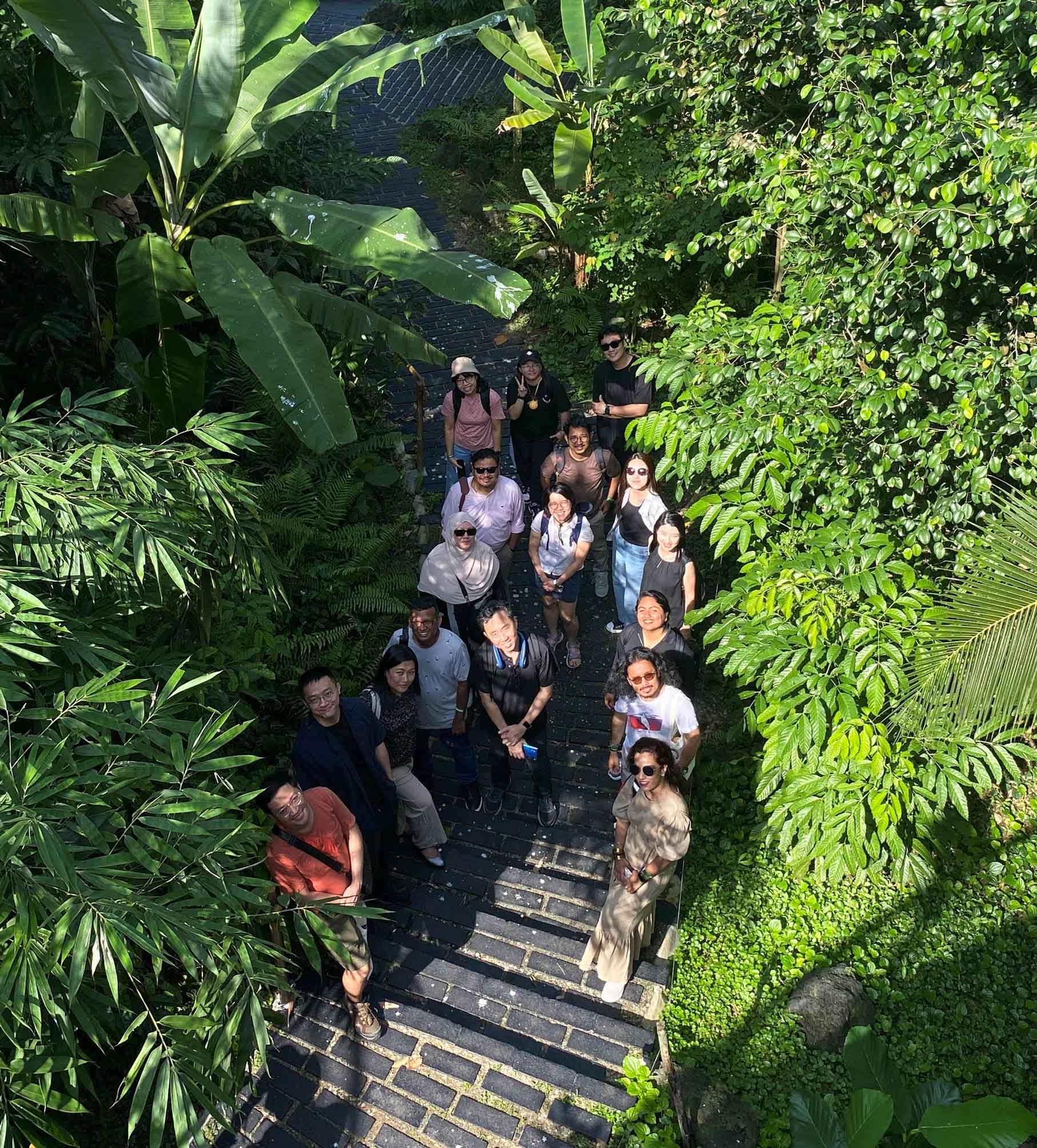
But honestly, I couldn't shake off the feeling of being upset, and the fact that I was completely alone made it a little blah for me. I think moments like this make you long for the comfort of family or friends—someone to just be there for you. And here I was, with no one. (P.S. I already know my mother’s reaction after reading this — she would say, "See, I told you, you can't live alone!")
I surely can live alone, but the truth is we South Asians are always so overly protected by our families and friends and spoilt by our loved ones that, no matter how independent we try to become, sometimes it just doesn’t feel right and the whole "grown-up" act seems like a harrowing experience. Was I homesick already? No, I wasn't but I am just trying to share that too much pampering can make you weak.
"Still in my airport attire," I sighed and went to the lobby after taking some rest as it was showtime. It was time to meet the other fellows.
I was in Singapore for a month to participate in the Asia Journalism Fellowship (AJF) as the only Pakistani journalist along with 16 others from different Asian countries. Slowly, everyone began gathering in the lobby to go out.
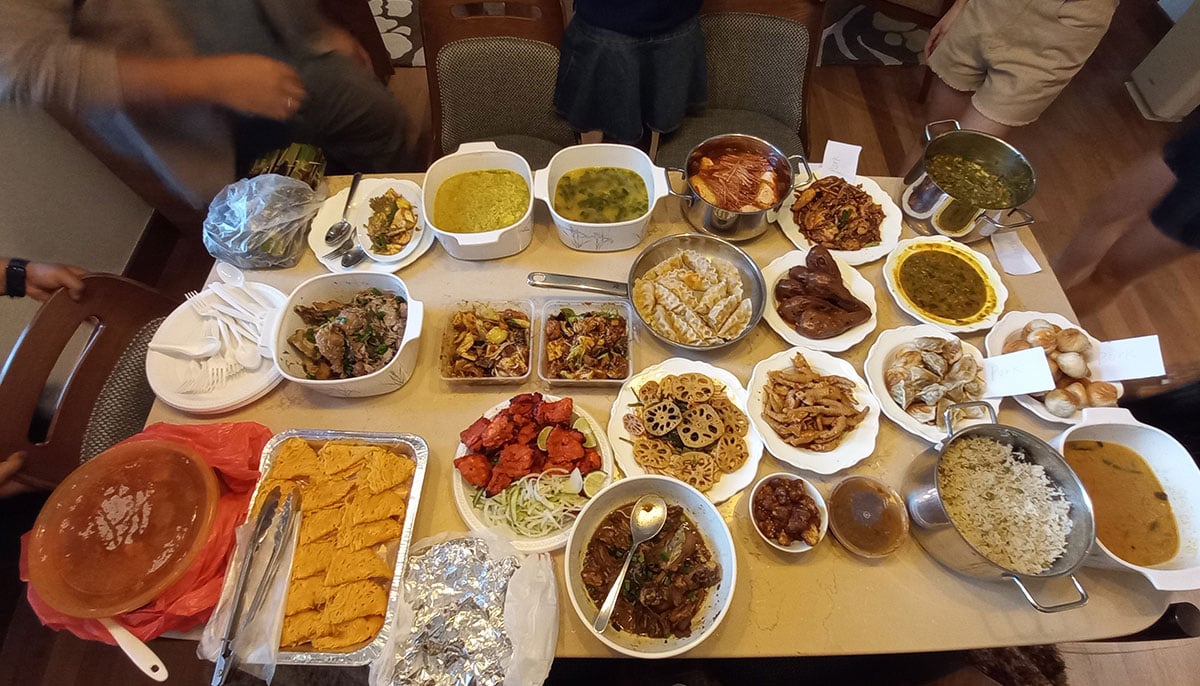
The plan was simple: get familiar with the area where we were staying, check out nearby shops and closest bus stops, and understand how the train system works in Singapore. And, then I found "a joy" [a term coined for an Indian fellow by Corinna Lim, the executive director of Aware, Singapore] when I met Ajoy Ashirwad Mahaprashasta.
It is funny how sometimes, amidst strangers and uncertain situations, you find a sense of belonging that mirrors the comfort of home and your loved ones. Ajoy, with his warm but contagious smile, made me feel comfortable instantly that we started talking in Urdu/Hindi like we had known each other for years. It was as if we shared a past (which we do), even though we had just met.
Ajoy was shorter than I expected (from what I had gathered from our earlier online sessions), but his presence was magnetic, filled with just positive energies even though we both belonged to very unfriendly and stubborn neighbours.
"I hope he will not bring up any 'issues' between our countries during this trip," I was hoping and he never did, thankfully.
The history of Pakistan and India is rooted in our joint colonial past. We lived together. But when British rule finally ended in 1947, the subcontinent was divided into Pakistan and India—based on religious lines, with Pakistan created for Muslims and India predominantly for Hindus. We have come a long way since then, but was it a smooth ride? Never.
A good neighbour is a blessing. I remember growing up, our next-door neighbours were extremely unfriendly and when we did find nice ones a few years later, our day-to-day life was completely changed and both families lived happily (Touchwood, the family is still our neighbour). Sadly, Pakistan and India cannot even call each other good neighbours.
'A friend for life'
"The AJF gave me a rare opportunity to meet a Pakistani. Like a serious journalist, I was excited to meet Sana and talk about a range of geopolitical issues and competing interests of our countries. But then she appeared in blue casuals and told me about how her luggage didn’t arrive at the airport. Her gentle but firm demeanour surprisingly made me feel as if I was still in Delhi. What I thought was a uniquely Delhi vibe wasn’t that unique after all. Karachi vibe came close, I laughed at the thought,” says Ajoy.
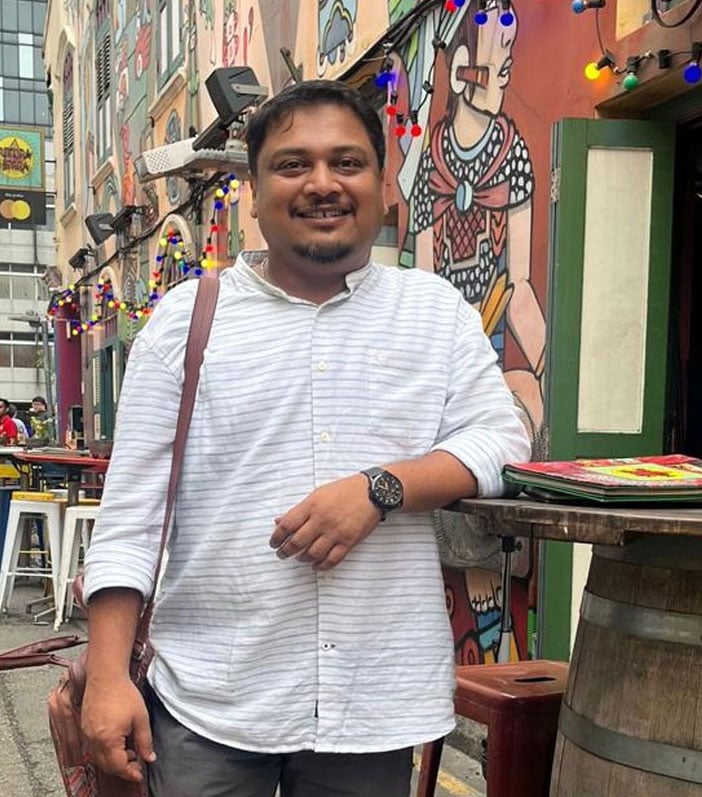
“At once, my initial excitement gave way to a much calmer, comforting feeling that I shared with Sana over a month in Singapore. In that whole month, we were anything but serious. We ate a lot, we travelled, we sang, shared trivial jokes, we even bitched, but could never come around to talk about the so-called geopolitics in any serious fashion. The more I got to know her, the more I shed off whatever little prejudice I had about Pakistani nationals. Sana showed me how we were good, bad, and also ugly in the same ways.”
"I had made a friend for life," says Ajoy.
I remember, how Ajoy was always talking about when Pakistan would start giving Indians visas because he wanted to visit Peshawar and have kebabs.
"Indians and Pakistanis have been cursed to see each other in light of the animosity that our governments have against each other. I can only think of how we share almost everything - not merely food, literature, poetry, language, music, clothes, and all cultural values but also our tragedies and miseries. I love Pakistani music, kebabs and niharis, the quirky sense of humour that all of you have. I know they all love our films, our songs, and our diverse landscape."
"I wish I could host you, Sana, in my home this Diwali, and spend the next Eid greedily gulping down sheer khurma at hers. There was never a time when I really hoped that our homes didn’t have national borders." I hope so, too, Ajoy.
'Perception of Bangladesh'
Let's go back to Singapore now. Meeting fellows from other Asian countries was refreshing and as a journalist, I got insights about how censorship had different shapes and forms across different regions as well.
As we walked along the Delfi Orchard Road, I knew that I still hadn’t greeted the journalist from Bangladesh, Jebun Nesa Alo. Umm… will she talk to me? Should I say, hi? I was constantly asking myself while she kept looking at me sheepishly before she broke the ice and finally said, "Are you from Pakistan?" in her "Jebun" style, which we all cherished throughout the programme.
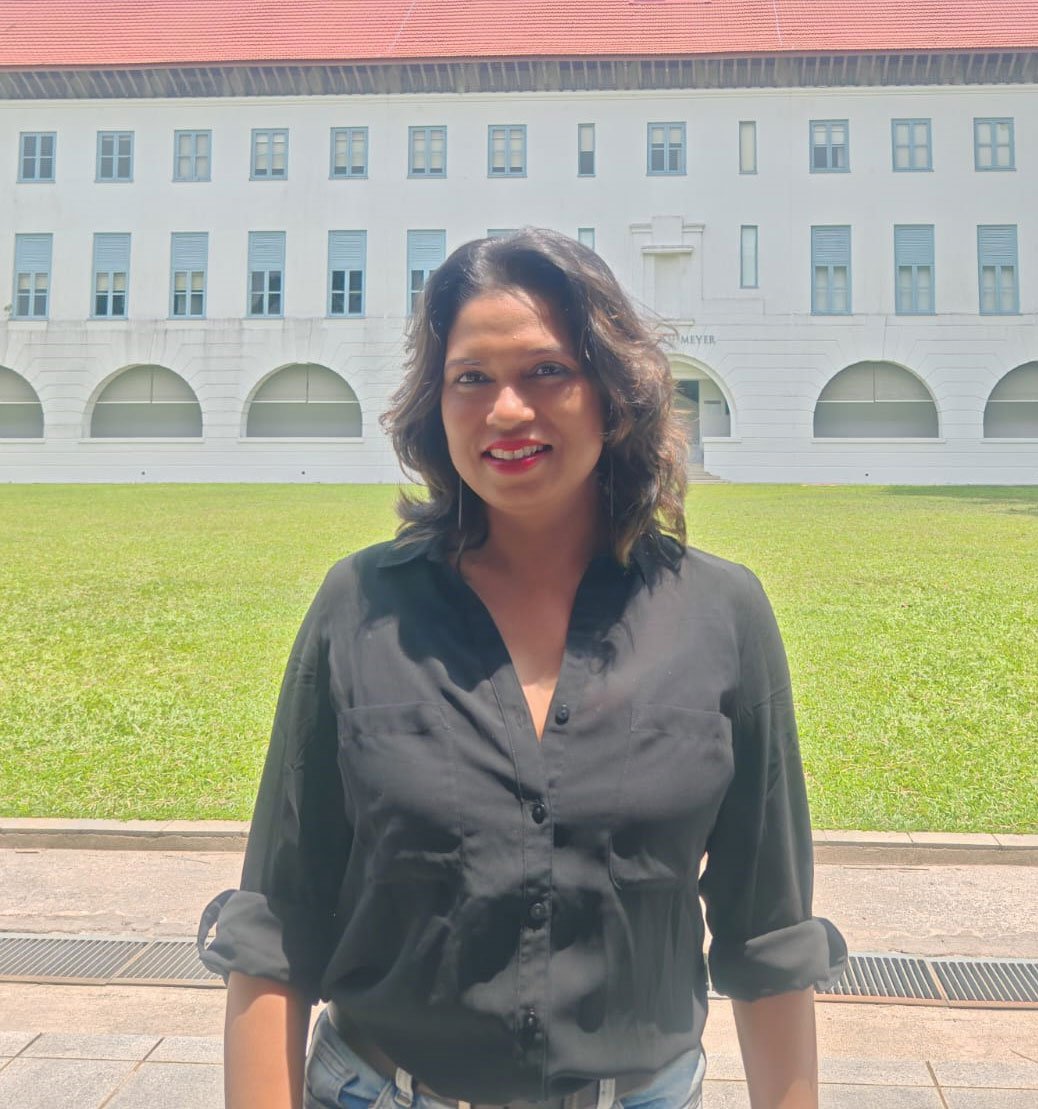
Jebun loved flaunting her Eastern style, especially when she wore a sari paired with traditional jewellery. Her outspoken nature, resilient demeanour, and relentless drive to uncover a good story made her truly unique amongst us all. I remember every time she wasn’t around, I couldn’t help but hope everything was okay.
"When I first met Sana,” says Jebun, “I was really interested in learning more about her perception of Bangladesh, given we had a long history of conflict. However, we soon grew up in friendship unconsciously since the younger generation is less concerned with the past.
"Rather, we were largely discussing how our two countries face similar difficulties. We were comparing the positive and negative aspects of political affairs in both countries. We were sharing our culture and food. Sana was eager to learn about Bangladeshi politics during a widespread student demonstration."
After independence, Pakistan was divided into two regions: East Pakistan (now Bangladesh) and West Pakistan. Later, tensions between the two sides escalated over various matters, ultimately leading to the 1971 war and the separation of Bangladesh as an independent country.
What happened at the time was complicated and something didn’t go right. I thought the bitterness from the events of 1971 might be reflected in her attitude toward me but I was so wrong. Jebun was as warm as my girlfriends back home.
"When I returned to Dhaka, I was happy that our friendship was still intact," says Jebun, for which I’m glad too.
'I wish our interactions aren’t so rare'
Fast forward to 2024, Pakistan, India and Bangladesh may have their distinct names, identities and directions today but we still share one common thing, a strong connection. In a place far from home, it was our shared culture, issues, food, struggles and perspectives that helped us make a healthy connection, and for me, it was like finding a family. In those moments, the weight of distance and politics melted away, and what remained was a feeling of unity and warmth.
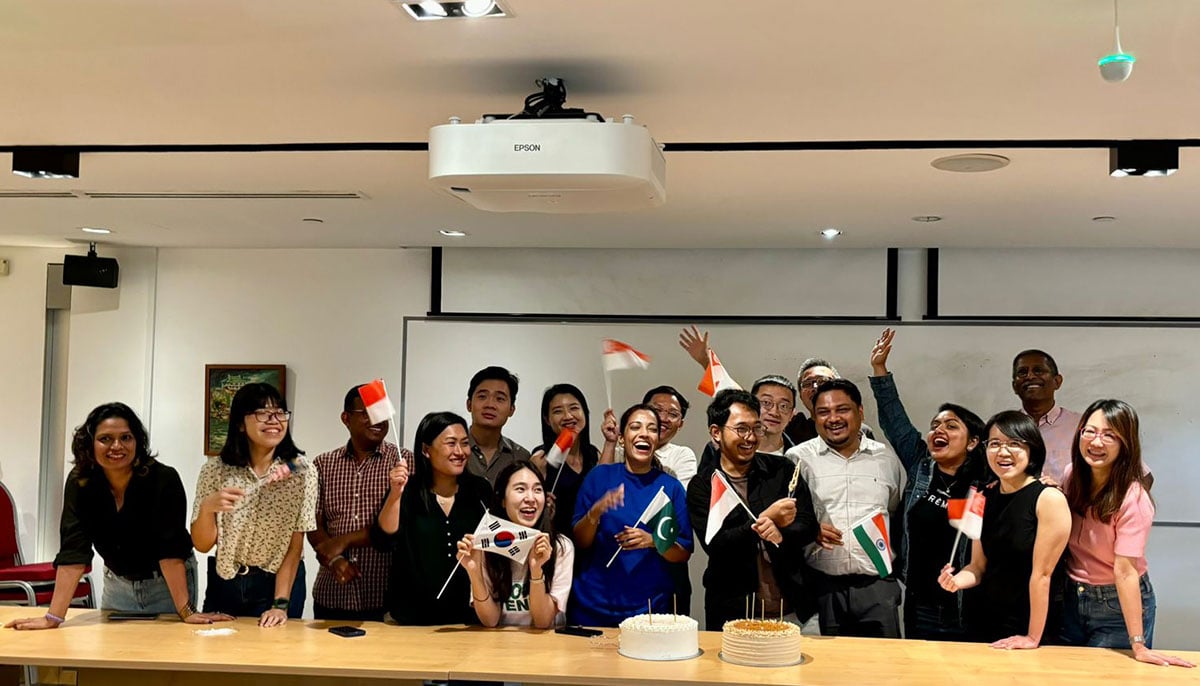
Simpler moments, like when I chipped a nail, I casually asked Jebun if she had a nail clipper on her; while when she found herself in a difficult situation after encountering a fleeing Bangladeshi politician in our hotel lobby, I was one of the fellows called to help her; when I struggled to close my suitcase the day I was flying out of Singapore — yes, I got it back by 11pm on day one — my first instinct was to bug Ajoy for help; and how he and I always shared our food, always reminded me that, no matter how far we go, the threads that hold Pakistan, India and Bangladesh together are still stronger than we even realise.
I pray that our interactions aren’t so rare and that we get to see each other casually in Karachi, New Delhi and Dhaka.
I wish the world could be like the AJF, where people from different countries, backgrounds, colours, and religions converge and mingle without any prejudice. Where a Sri Lankan fellow becomes your shopping buddy and a Filipino fellow cooks a separate halal chicken dish for you. Empathy is what the world needs most today.
By the way, Ajoy, despite your claim, just accept that Pakistani mangoes are the best in the world. Wink!
Sana Jamil is Digital Editor at Geo.tv. She posts on X @SanaJamil5
— Header image by Zakaria Zainal and thumbnail image by Jacky Ho



